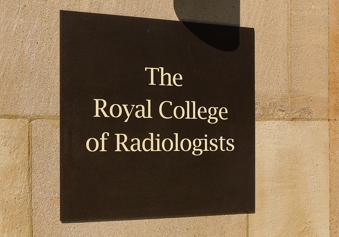RCR submission to the national cancer plan
The upcoming National Cancer Plan is a real opportunity
Cancer affects us all, either directly or indirectly via someone we love. RCR members encounter and work to manage cancer every working day. The demand for cancer care is rising, and care is becoming more complex and diverse – so we need to evolve our approach to cancer care accordingly.
The last cancer strategy in England was published in 2015 and, despite multiple attempts to start a new one, none has yet materialised. However, we are cautiously optimistic about the upcoming National Cancer Plan being developed by NHS England and the Department of Health and Social Care. We have had a lot of engagement with the teams writing the Plan. They do not have much money to work with, but they seem open and committed to improving things.
We feel strongly that Royal Colleges have an important role to play in shaping the Plan. Our members play a critical role in cancer care. You have expertise and experience to share, and the Plan will affect your daily lives. So we brought together the authors of the Plan along with representatives from various other Colleges, for a discussion about what’s needed in a new cancer plan. We are planning a second event and we hope to influence the Plan’s final recommendations.
RCR submission to the Cancer Plan consultation
Today we are sharing with RCR members our response to the Cancer Plan consultation.
One important caveat is that we understand the Cancer Plan has no dedicated additional funding. So we’ve prioritised changes that would be impactful, but low- or no-cost (or even cost-saving!)
Another caveat on workforce: adequate staff to deliver cancer care is absolutely essential, and any plan for revamping cancer services is doomed to fail if we don’t have the right workforce in place. In parallel, the government is updating the NHS Long-Term Workforce Plan, which we hope will take this forward. The two plans must be aligned.
You can read the summary of our response to the Cancer Plan below, or our full submission here.
Summary of our consultation response:
- Multidisciplinary team meetings: whilst multidisciplinary working is crucial, MDTMs in their current form are hugely time-intensive and don’t always improve patient care. They need to be radically reformed. Only those complex cases that would merit discussion should be brought to MDTM, and MDTMs should be a forum that focus on service improvements to benefit all patients.
- Promoting innovative therapies: many NHS systems and structures stifle, rather than promote, innovation. For example, the regulatory framework for SABR means individual applications must be made for every new indication; this is cumbersome, wastes time and leads to unequal access. Systems like this, as well as the block contract reimbursement model, need to be developed with innovation front and centre.
- Supportive oncology: as more elderly patients live with cancer for longer, supportive oncology becomes more and more essential – a multidisciplinary approach that helps patients manage the effects of their cancer whilst living their lives to the best of their ability. Unfortunately, it is currently under-utilised and uncoordinated. There needs to be a clear plan to integrate SO into cancer departments across the country and work SO into workforce and service planning.
- Clinical trials: the NHS is not fully using its enormous potential to run multicentre clinical trials. These would be especially valuable for research questions that pharmaceutical companies are less likely to pursue, such as the optimal treatment regimens for elderly or frail patients, or the identification of groups who should not receive a given treatment.
- Data: there is significant unrealised potential to collect and use data at the national level to drive service improvements. NATCAN and the Radiotherapy Dataset should be expanded and made inter-connected. Patient Reported Outcome Measures should be systematically connected and integrated with other datasets.
Next steps
We are in close contact with the team behind the National Cancer Plan. We are hosting a second roundtable with the authors in July, which they requested as they also feel Royal Colleges have an important role to play - both in shaping the Plan’s recommendations, and putting them into practice.
We are also developing a series of short documents that will make the case for specific changes we believe the Cancer Plan should make. These will be published in the coming weeks.
We will keep you informed about our work to influence the Cancer Plan and will share what the final Plan means for you once it is published.
For any questions, please contact [email protected].
Our policy reports & initiatives
